News
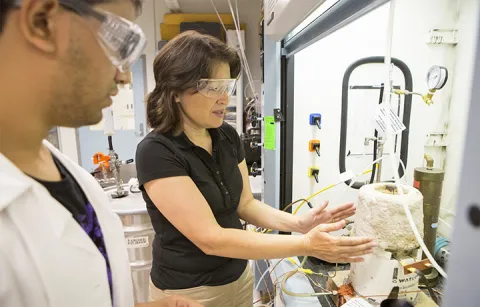
Sat, 05/26/2018 | Department of Mechanical Engineering
Climate research pioneerA 2018 UW Engineering Diamond Award recipient, alumna Tami Bond has pioneered efforts to better understand black carbon’s environmental impact.
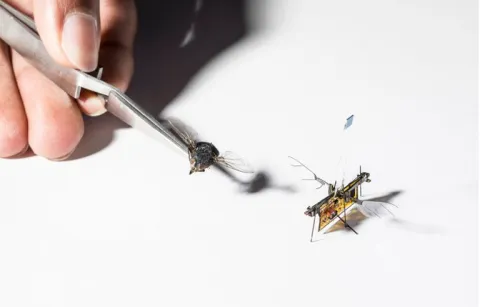
Thu, 05/17/2018 | The Economist
The world’s lightest wireless flying machine lifts offDrones are getting ever smaller. The latest is the first insect-sized robot to take to the air without a tether delivering its power.

Tue, 05/15/2018 | UW News
The first wireless flying robotic insect takes offInsect-sized flying robots could help with tasks like surveying crop growth or sniffing out gas leaks. But current flying robo-insects are still tethered to the ground because of heavy electronics they need. ME doctoral students, ME Assistant Professor Sawyer Fuller and CSE Associate Professor Shyam Gollakota have for the first time cut the cord and added a brain, allowing their RoboFly to take its first independent flaps.
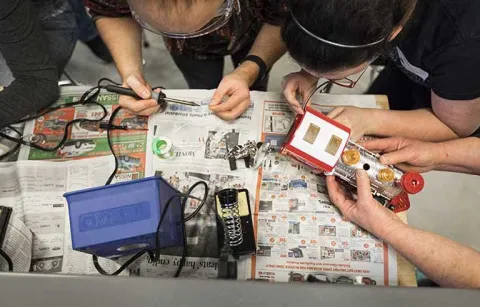
Mon, 05/14/2018
Making play possibleDriven by students, HuskyADAPT is teaching the UW community how to modify toys for kids with disabilities.
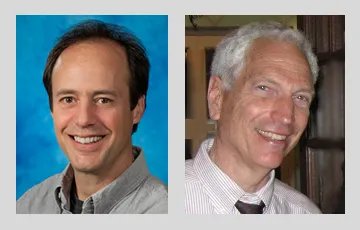
Fri, 05/11/2018 | BioOptics World
Scanning fiber endoscope helps to better detect brain tumor margins
A team of researchers in UW ME and the Barrow Neurological Institute used a scanning fiber endoscope to detect the fluorescent glow produced by adding the pro-drug 5-ALA to experimental models of malignant brain tumors. BioOptics World highlighted work by Eric Seibel, professor in ME, and Leonard Nelson, affiliate professor in Human Photonics Laboratory. "The combination of high sensitivity and long viewing time of the fluorescently labeled cancer should allow the guidance necessary for more complete tumor margin cleanup," say Seibel and Nelson.
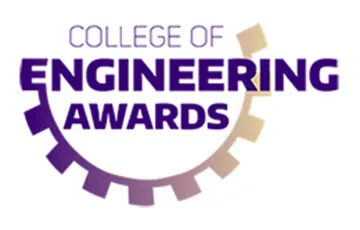
Tue, 04/17/2018 | Department of Mechanical Engineering
College of Engineering Awards
Congratulations to the ME faculty, students and staff members who received 2018 College of Engineering Awards:
- Junior Faculty Award: Steven Brunton
- Faculty Research Award: James Riley
- Student Teaching Award: Soyoung Kim
- Classified Staff Award: Kendra Burdett
- Team Award: Engineering Innovation in Health teaching team — Jonathan Liu, Jonathan Posner, Eric Seibel and Kat Steele
The College of Engineering Awards acknowledge the extraordinary efforts of the college’s teaching and research assistants, staff and faculty members. Award recipients and nominees will be honored at a college-wide reception on Thursday, May 24, 2018.
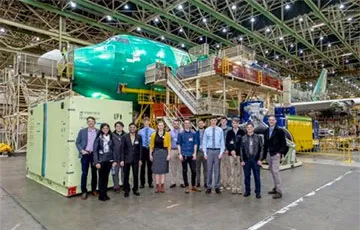
Thu, 04/12/2018 | Boeing Advanced Research Center
UW students present research projects to Boeing engineering leaders
Collaborative robotics, haptic alert systems for hearing-impaired employees, and riveting safety — these are just a few of the projects UW students from the Boeing Advanced Research Center (BARC) showcased at the Future of Flight Museum during a recent meeting with Boeing engineering leadership. The solutions developed in the BARC are designed to one day transition from the lab to the factory.
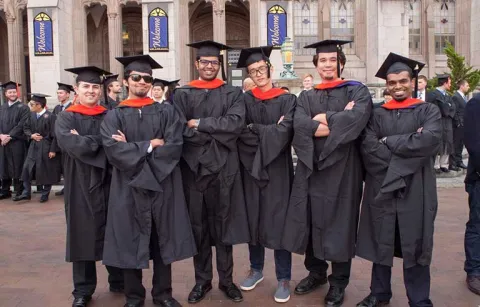
Wed, 03/07/2018
Mechanical engineering master's degreesUW ME is home to one of the major mechanical engineering graduate programs in the country. And of the nearly 400 graduate students currently pursuing graduate degrees, more than half are working on master’s degrees. Learn about ME master's program pathways and career benefits.
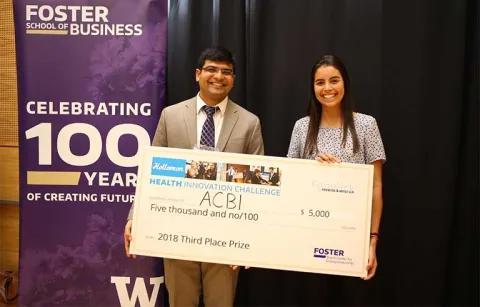
Thu, 03/01/2018 | UW Foster School of Business
Students wow judges at Hollomon Health Innovation ChallengeStudent entrepreneurs dazzled at the 2018 Hollomon Health Innovation Challenge, hosted by the UW Foster School’s Buerk Center for Entrepreneurship. Teams of UW Engineering students won top honors, including a third place win and $5,000 for a team of ME and EE graduate students for ACBI, technology that makes continuous bladder irrigation treatment faster, less expensive, and safer.
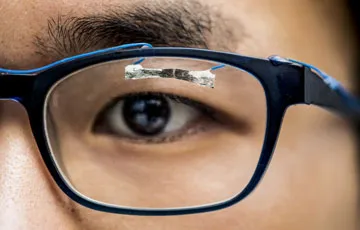
Mon, 02/12/2018 | UW News
Tissue paper sensors show promise for health care, entertainment, roboticsUniversity of Washington engineers have turned tissue paper – similar to toilet tissue – into a new kind of wearable sensor that can detect a pulse, a blink of an eye and other human movement. The sensor is light, flexible and inexpensive, with potential applications in health care, entertainment and robotics.
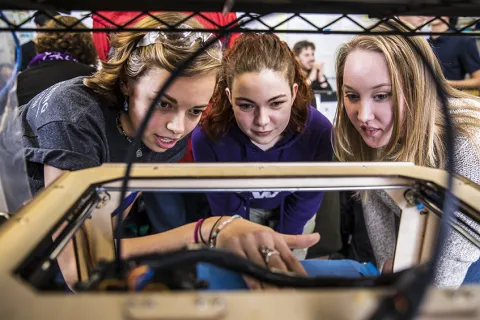
Mon, 02/05/2018
Open accessAirplanes? Fossils? Health care? Accessibility? Whatever you’re into, the WOOF 3D Print Club wants to show you how it can benefit from 3D printing
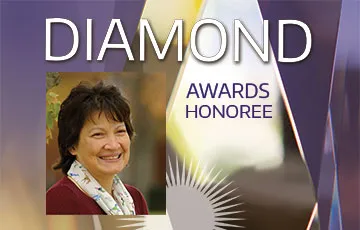
Wed, 01/17/2018 | UW Engineering
ME alumna Tami Bond receives UW Engineering Diamond Award for Distinguished Achievement in Academia
Despite its name, black carbon — the dark component of smoke — is largely invisible in global climate change models. The lack of standardized measurement tools, in addition to black carbon’s numerous sources, have made it hard for scientists to measure black carbon emissions and their impact on the environment. Through the pioneering analysis of ME alumna Tami Bond, black carbon has been identified as one of the most significant contributors to manmade climate change — second only to carbon dioxide. More about Tami Bond »
The 2018 Diamond Awards will be held on Thursday, May 10, 6–9 p.m.
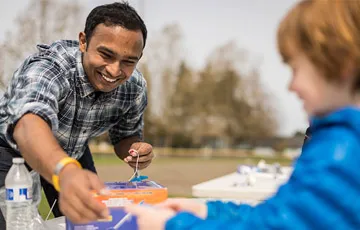
Tue, 12/19/2017 | CSNE
CSNE community helps UW grad student educate the next generation of neural engineersThe Center for Sensorimotor Neural Engineering profiled ME doctoral student Gaurav Mukherjee. Mukherjee is involved with the Department of Veteran Affairs Center for Limb Loss and MoBility. Currently, he is studying the role of sensory feedback in developing better electromechanical interfaces between the human hand and machines such as exoskeletons and prostheses
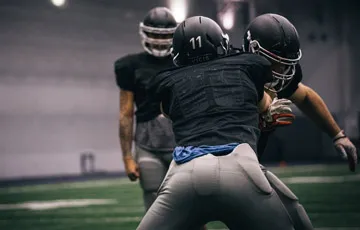
Tue, 12/05/2017 | Department of Mechanical Engineering
Innovation impactThe Department of Mechanical Engineering empowers students and faculty to learn, discover and build solutions to tomorrow’s challenges. From safer football helmets to cleaner cookstoves, the impact of ME’s innovations can be felt near and far.
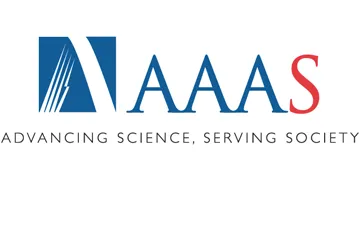
Wed, 11/22/2017 | UW Today
AAAS names 8 UW researchers as fellows in 2017James Riley, professor of mechanical engineering, was named as a fellow of the American Association for the Advancement of Science. Riley was honored for his contributions in fluid mechanics and his advancements in the understanding of turbulent flows.
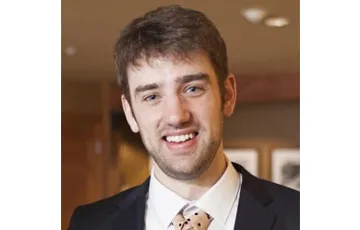
Mon, 11/13/2017 | UW Graduate School
Meet the Winners of the Grad School’s Distinguished Thesis AwardJan Wittenbecher, MSME ’17, received the UW Graduate School's Distinguished Thesis Award, which recognizes exceptional scholarship and research at the master’s and doctoral levels. Wittenbecher used his involvement in EcoCAR as a platform to investigate the feasibility of a hybrid muscle car for his thesis.
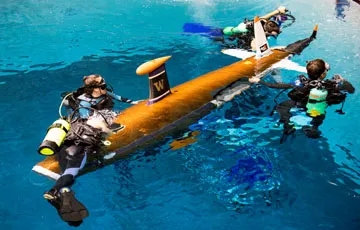
Wed, 11/08/2017 | Department of Mechanical Engineering
Tradition with a modern twistThe UW Human Powered Sub Team has blended traditional boatbuilding with aerospace and marine engineering to create a one-of-a-kind submarine. Their wooden sub, Knotty Dawg, won first place in the two-person competition at the International Submarine Races this summer.
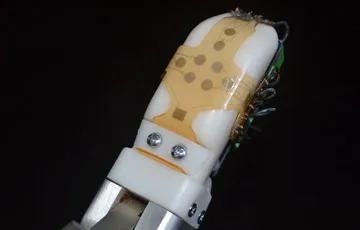
Mon, 10/30/2017 | Forbes
This New Stretchy Robotic Skin Senses When An Object Is Slipping Out Of Its GraspForbes highlighted the new electronic "skin," developed by a team of researchers including ME professor Jonathan Posner. The skin has sensors able to detect shear forces that help a robot sense when an object is slipping out of its grasp.
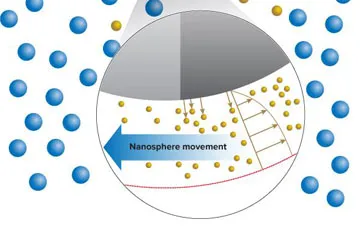
Wed, 10/25/2017 | Knowable Magazine
Particles get a move on without motorsNanoparticles that are coated on one side with a reactive material can propel themselves through fluids, when the particle coating interacts with the fluid. This self-propulsion could enable targeted drug delivery and aid environmental clean-up efforts.
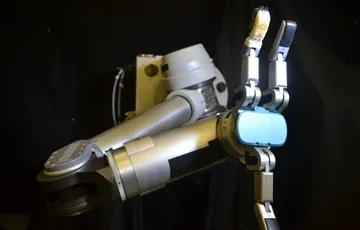
Tue, 10/17/2017 | UW Today
Flexible ‘skin’ can help robots, prosthetics perform everyday tasks by sensing shear forceRobotic and prosthetic hands must be able to sense shear forces, such as the pull created when objects slip from grasp, to manipulate items with greater precision. As yet, robotic hands have had difficulty accurately sensing vibrations and shear forces. A team of researchers, including ME professor Jonathan Posner, developed a flexible sensor “skin” that can be stretched over any part of a robot to accurately convey information about shear forces and vibration.
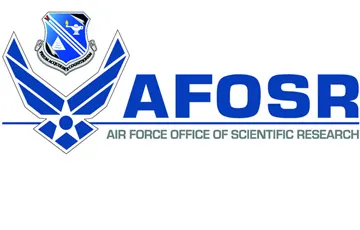
Wed, 10/11/2017 | Air Force Office of Scientific Research
Steven Brunton awarded AFOSR Young Investigator Research Program grantCongratulations to assistant professor Steve Brunton on receiving an Air Force Office of Scientific Research Young Investigator Research Program grant! Brunton will use the $450,000 grant to fund his research proposal: “Interpretable nonlinear models of unsteady flow physics.”
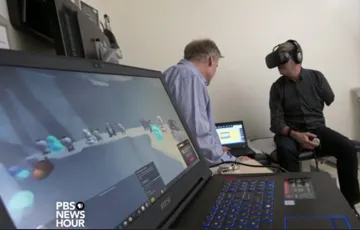
Wed, 10/04/2017 | PBS NewsHour
Understanding the science of pain with the help of virtual realityME research scientist Hunter Hoffman was featured on the PBS NewsHour, demonstrating the virtual reality game he developed, called SnowWorld. When acute and chronic pain sufferers play SnowWorld, it can help relieve their pain without needing to resort to narcotic painkillers. This drug-free pain relief could play a role in combating the opioid crisis.
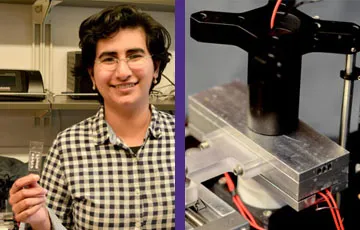
Wed, 10/04/2017 | UW Today
New portable blood analyzer could improve anemia detection worldwideA research team, including ME associate professor Nathan Sniadecki, has developed a device to monitor anemia that is smaller than a toaster. About one quarter of the world’s population suffers from anemia, but current methods for analyzing blood require hands-on expertise to prepare and run a sample, limiting the ability to monitor anemia in many parts of the world. This new device requires only a few drops of blood for analysis and does not require additional steps to prepare the sample.
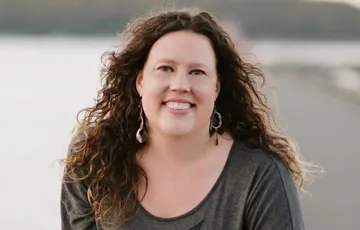
Tue, 09/19/2017 | Department of Mechanical Engineering
Building a future with MEAngela Templin, BSME ’99, shares how her time in the mechanical engineering department set her up for a successful career in sustainability and commissioning.
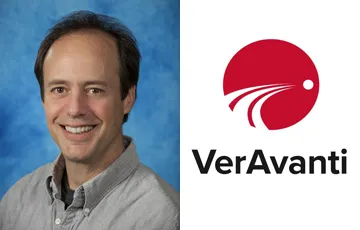
Sun, 09/17/2017 | The Seattle Times
Redmond’s VerAvanti is medtech startup minus the VC fundingVerAvanti, a medtech startup focused on long-term research and development, launched after licensing scanning fiber endoscope technology invented in ME research professor Eric Siebel’s lab. The endoscope takes HD-quality images of blood vessels and could help cardiologists discover what causes certain types of strokes and heart attacks. VerAvanti hopes to put the endoscope on the market by the end of next year.